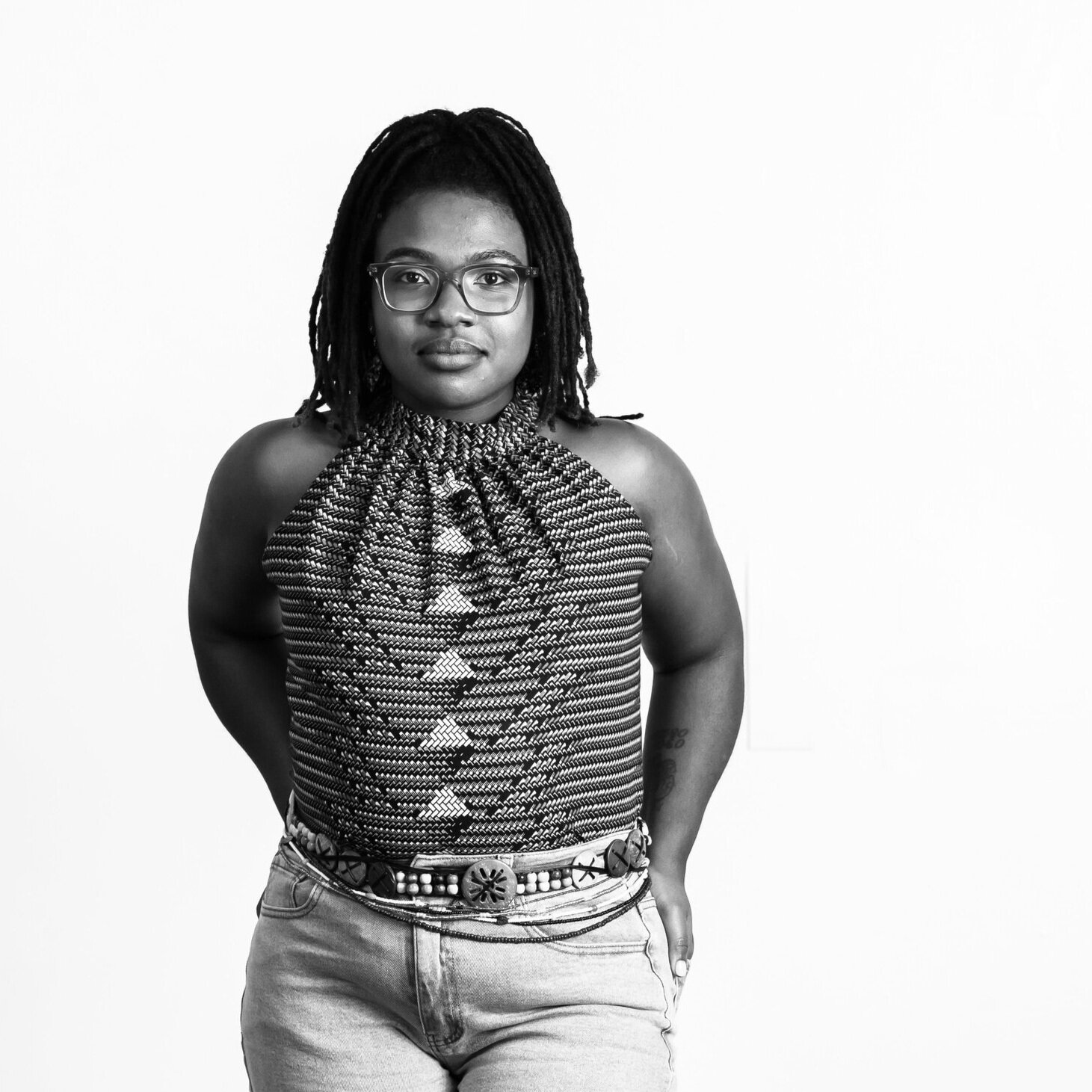
Mom, Birth Justice Researcher
– Brittany
I had horrible experiences as a teen mom. I just felt like I wasn’t given a chance. When I walked in the doctor’s office, I was judged. I received nasty comments from the front desk all the way through my appointment. For example, if I said, “Oh my God, that hurts.” I’d get comments like, “Oh, where are you saying that when you were having sex?”

I’d leave and cry. I felt like I was hopeless. I didn’t have any power. So, I came to this point where I was just like, “You know what? This is f#$% up.” I first wanted to be an OB GYN, to be able to provide care to teen moms who came in, to let them know it’s okay, I got your back in this.

That turned into me going into public health. So, I had an interesting pathway, but it was not… I did not go to college knowing that I wanted to be Dr. Chambers, in this particular way, PhD, Dr. Chambers. So, each step of the way, something else happened and made me go on to the next level.
As a researcher at UCSF, I seek to understand how structural factors [create] imbalance [and] adverse birth outcomes. Research [reveals] that we must move away from the individual narrative or the victim-blaming narratives, and really look at how policies, [or lack thereof,] impact communities of color and affect birth outcomes.
Our work, which first started in Oakland but has now expanded to San Francisco, is focused on understanding how stress, including racism, contributes to preterm birth. And we are not doing this work alone. We’re intentional about doing this work with the community. A lot of my research focuses on Black mothers and other women of color, [and] on giving the support they need like with the SOLARS Study, which stands for Supporting Our Ladies And Reducing Stress to prevent preterm birth Study.
It is super important to do this work in partnership with the community. The reason we do not see a closing of the disparity gap is because a lot of researchers have been doing this work without [including] the people who are most-impacted and because the funding levels aren’t enough to make systematic changes.
One major challenge is that there isn’t much funding to do this type of work in the way it needs to be done. Funders want to fund biospecimen or big data studies that can produce fast results. Funders do not understand that this is different, and that community work takes time. We can’t throw some s#!t out there and tell people what they should be doing. This is a partnership, and it takes time. We’re always fighting ten times more and getting half the funds to do like 25,000 things. It’s frustrating to see other people getting funding to do this work, primarily white men and women who call themselves disparity researchers. They are doing this work in very wrong and harmful ways. To make a change, we need access to unrestricted funds for Black women researchers.
Another challenge is helping people understand the effects of racism. Racism limits access to resources. Racism limits what people have access to in their community and their neighborhoods. Think about [whether] children can go outside to play or suppose you have to travel far for healthy food. It’s not just a coincidence that these are things that are highly burdening Black communities.
More people are starting to understand how racism operates, but through the lens of the physical policing of Black bodies. People see that. I need people to know the way that police kill Black men is the same way that doctors kill Black women.
Women of color know you are not alone. You don’t have to do this on your own. You have a village, and we’re stronger together. We need you to feel comfortable asking for help and not suffer in silence. There are a lot of other Black and brown birthing people, resources, and community organizations that can make you feel safe, and provide support and access.
National Birth Equity Collaborative
SisterSong Women of Color Reproductive Justice Collaborative